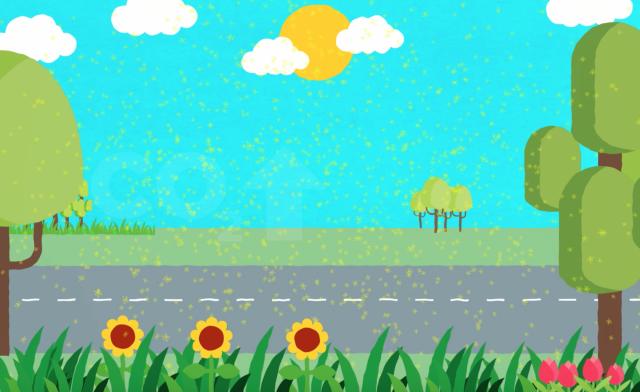
Sneeze, sniff, repeat.
If this sounds like you, there’s a good chance you have seasonal allergies.
Also known as hay fever or allergic rhinitis, allergies affect an estimated 20 million Americans. The onset and severity of your symptoms can depend on where you live, so they can happen in the spring, summer or fall when grasses and weeds release pollen.
In general, though, spring allergies kick off in February and last until the early summer.
So why does something as simple and natural as pollen send our bodies into overdrive? Look no further than your immune system. Pollen is considered to be an allergen, and when an allergen gets inside of your body, the immune system goes into defense mode. This results in the release of a chemical called histamine that causes a handful of unpleasant reactions.
Some of the most common symptoms include sneezing, stuffy or runny nose, watery eyes and itching.
If your symptoms are mild, the simplest way to treat your allergies is to try an over-the-counter treatment like an antihistamine, decongestant, or nasal corticosteroid. These solutions work for a lot of people, but if you don’t find relief, it might be time to visit a physician.
Purvi Parikh, MD, an allergist and spokesperson for the Allergy and Asthma Network, says there are two tests that can help doctors pinpoint the specific allergens that are causing discomfort.
“With a skin test we scratch the surface of your skin with various different allergens,” she tells Yahoo Lifestyle. “If you’re allergic it makes a little red bump over that specific allergen.”
The other option is a blood test where doctors measure IgE (immunoglobulin E) — the antibody responsible for allergic reactions. If you’re exposed to an allergen and are allergic to it, IgE levels will go up in your blood sample.
If OTC options aren’t getting your symptoms under control, your allergist might prescribe a medication to help. But there are also some lifestyle changes you can make to find some relief. First, consider getting allergy covers to go around your mattress, box spring, and pillow cases. It’s also a good idea to close your windows early in the morning when pollen counts are the highest. Lastly, change your clothing and rinse off your body before you get into bed, so you don’t bring pollen along with you.
Finding the treatment that works for you is important because allergies are not going away. The World Allergy Organization notes that climate change has increased carbon dioxide levels. This makes temperatures rise, which extends the growing season and therefore the potency of pollen.
In other words, we’re in for longer and more intense allergy seasons. This trend is evident in emergency rooms, where doctors have already seen an increase in the number of people coming in due to allergies that are more severe.
“What used to be mild symptoms is now resulting in asthma attacks, difficulty breathing, rashes, people can’t open their eyes because they’re swollen,” says Parikh.
If your allergies feel severe, see a doctor. Don’t let your sneezing keep you indoors. You deserve to get outside and enjoy the weather. Just be sure to pack some tissues.

No comments:
Post a Comment